Syria war: UN seeks urgent Eastern Ghouta medical evacuations
- Published
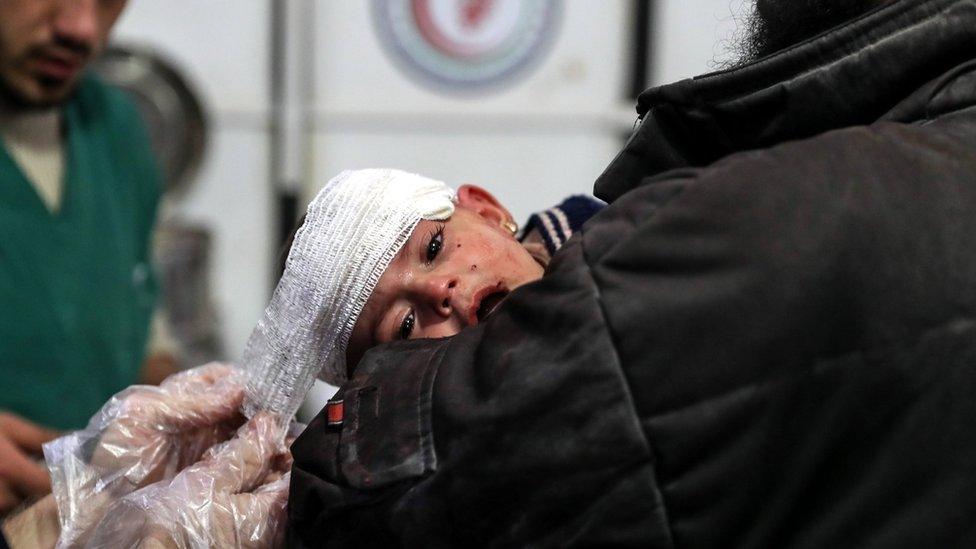
The UN said 167 children were among the 500 civilians needing urgent medical evacuation
The UN's humanitarian co-ordinator for Syria says 500 people with urgent medical needs must be evacuated from a besieged rebel-held area near Damascus.
Jan Egeland said there had been nine deaths so far among those waiting for permission to leave the Eastern Ghouta.
Dozens of civilians are also reported to have been killed in recent air and artillery attacks by government forces, though a ceasefire is now in place.
Food shortages have meanwhile led to many cases of severe malnutrition.
The appeal came as government and opposition delegations arrived at a UN complex in Geneva for the latest round of talks aimed at finding a political solution to the civil war, which has left more than 340,000 people dead since 2011.
UN envoy Staffan de Mistura said he believed the moment was right now for real progress, and that he might encourage the two sides to meet face-to-face.
The UN has been trying for weeks to arrange medical evacuations in the Eastern Ghouta, where towns and villages have been under siege since 2013.
But Mr Egeland said the government had not given permission to move any of them out, and that nine civilians on its list had died in the past few weeks while waiting.
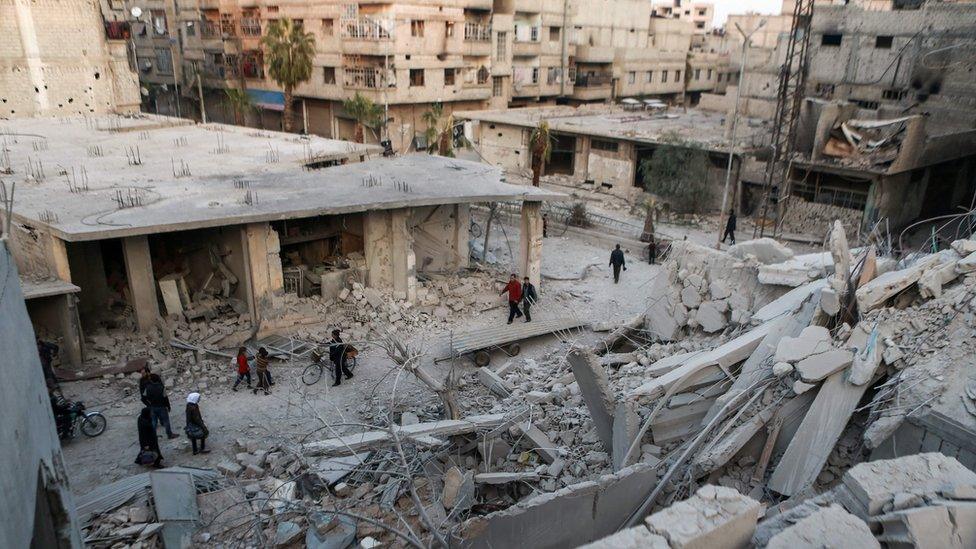
Towns and villages have been under siege by government forces since 2013
He said Russia and Iran, the Syrian government's main allies, and the US and France, which are among the opposition's supporters, had offered to help with the "humanitarian emergency".
"It would be incredible if they cannot deliver a simple evacuation of mainly women and children, a 40-minute drive to Damascus city," he said. "We're ready, we're willing to go. We can handle the security. We have all of the tools available. We need a green light."
Mr Egeland also noted that the acute malnutrition rate among children trapped in the Eastern Ghouta was 11.9% - five or six times what was reported in January, and the highest so far recorded in the country since the civil war began.

Limited electricity, fuel, safe drinking-water and basic sanitation services are increasing the risk of outbreaks of diarrheal diseases.
Joint UN and Syrian Red Crescent aid convoys have only been able to deliver enough food and medical supplies for 68,000 of the 400,000 civilians trapped there over the past two months.
That is despite the Eastern Ghouta being designated as a "de-escalation zone" earlier this year by Russia, Iran and Turkey, which supports the opposition.
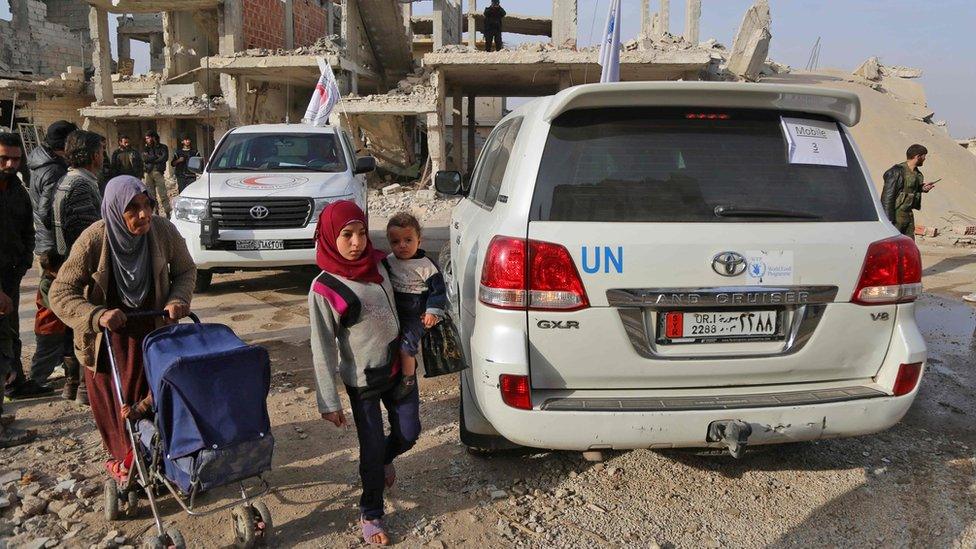
A joint UN-Syrian Red Crescent convoy reached the town of Nashabieh on Tuesday
"In general there is no de-escalation zone. There is only escalation in this de-escalation zone," Mr Egeland said. "That has ended in Eastern Ghouta except for [a pause of] two days only, there has been a massive loss of civilian life, hundreds have been wounded."
On Tuesday, the UN announced that the Syrian government had agreed to a proposal for a ceasefire in the area after two weeks of heavy bombardment.
Mr Egeland said the UN needed "sustained calm" to reach all of those in need.
- Published26 November 2017
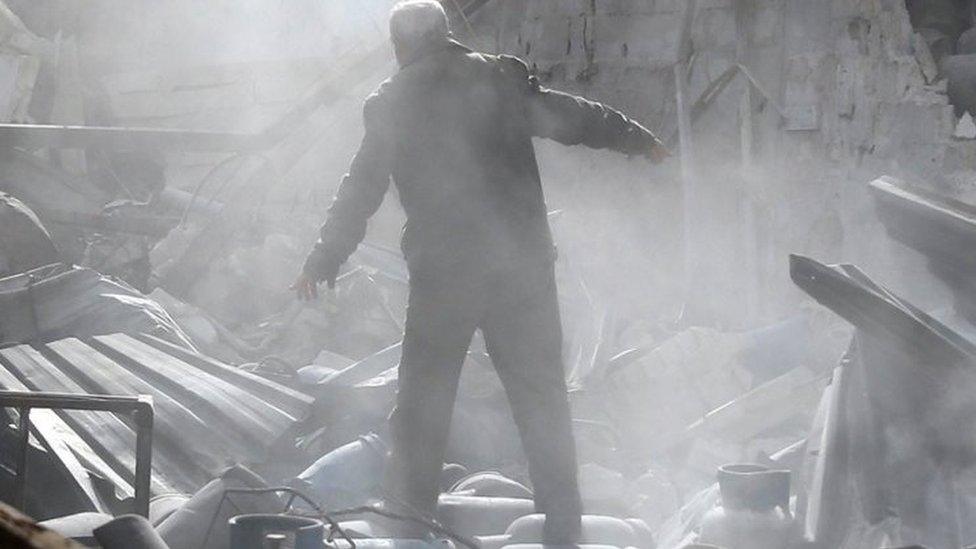
- Published13 November 2017
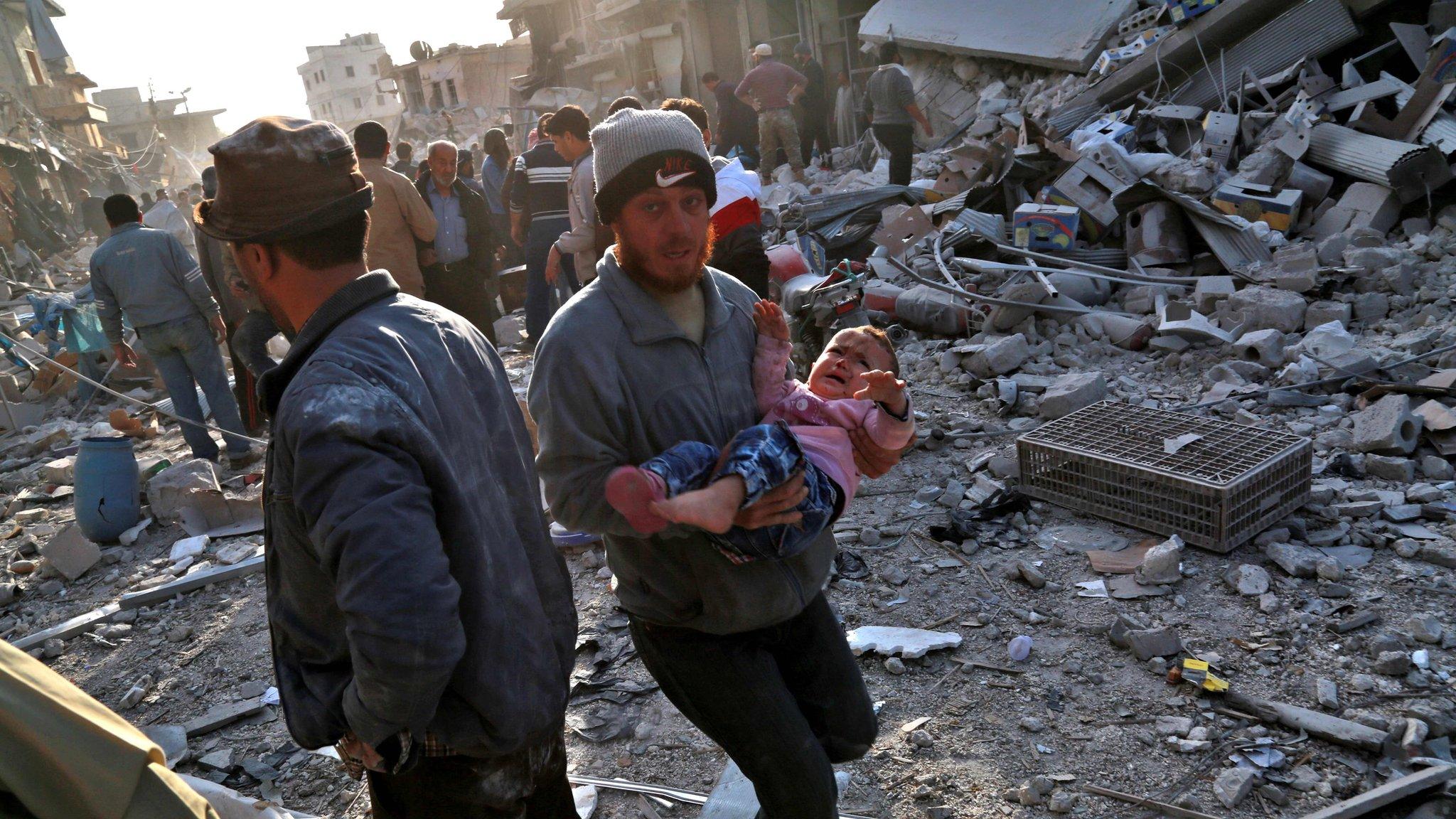
- Published13 November 2017
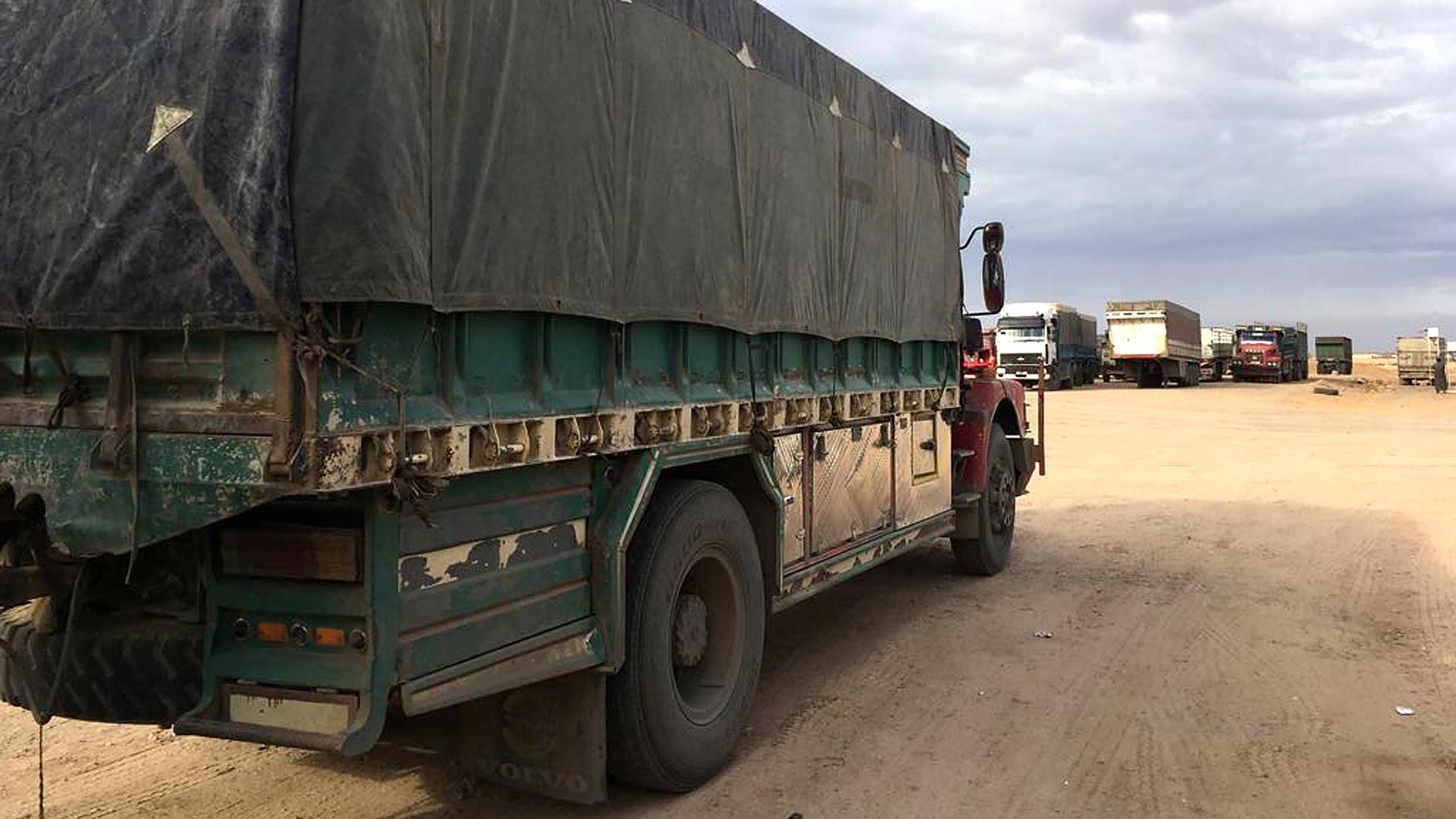
- Published12 November 2017
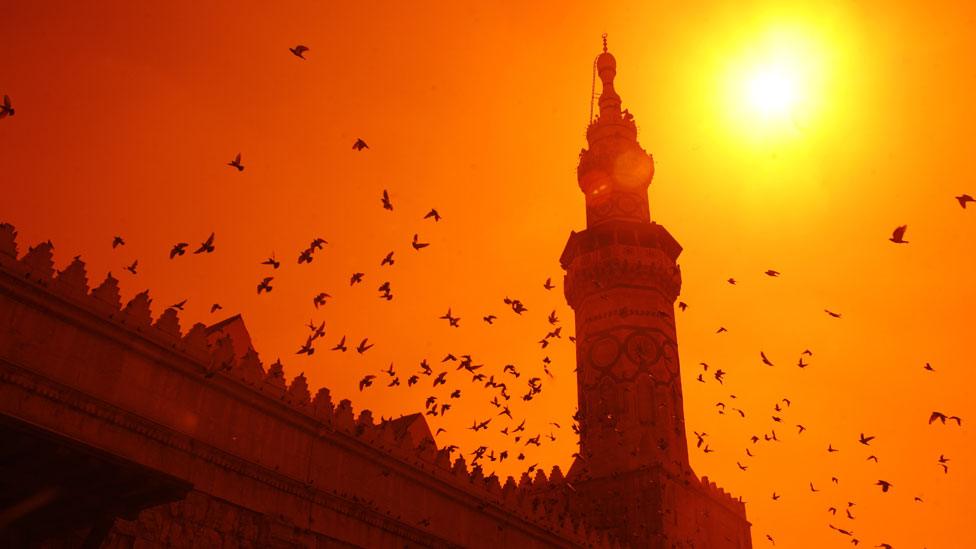
- Published4 November 2017
- Published2 May 2023
